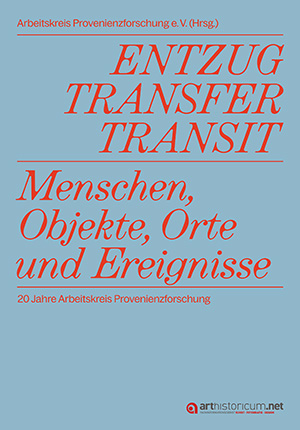Zitationsvorschlag
Lizenz (Kapitel)

Dieses Werk steht unter der Lizenz Creative Commons Namensnennung 4.0 International.
Identifier (Buch)
Veröffentlicht
Postkoloniale Provenienzforschung im Ethnologischen Museum und im Museum für Asiatische Kunst: Methoden und Ziele einer kooperativen Forschungspraxis
Postcolonial provenance research in the Ethnologisches Museum and in the Museum für Asiatische Kunst, Berlin: Towards a new relational ethic
Provenance research for objects from colonial contexts at the Ethnologisches Museum and the Museum für Asiatische Kunst, both part of Staatliche Museen zu Berlin, is a main focus of public interest, not least because of their move to the Humboldt Forum. Since 2019, our team of provenance researchers based in the Zentralarchiv has concentrated on the issue how the vast collection holdings of the Ethnologisches Museum and the Museum für Asiatische Kunst may be researched systematically and in cooperation while taking the postcolonial presence into consideration.
Our paper will present our position and the resulting practice of postcolonial provenance research, as well as consider the question how provenance research can be systematized and prioritized in collections of one million objects above and beyond quantitative investigations of chains of acquisition. As we understand it, postcolonial provenance research refers to the period of acquisition and the translocation history of the objects on the one hand, and to methods and objectives of research on the other. We approach research as an open, cooperative, and powercritical process which may either lead to a reactivation of collection holdings or to their restitution. The objective is the establishment of a cooperative and sustainable research process with multiple knowledge producers while giving scope for diverse forms of knowledge, including historical accounts as well as current experiences and interpretations, and to allow future visions. In this way, postcolonial provenance research will also create new relational ethics between museums and their staff, people from diasporas, political activists, and representatives from so-called source communities.







